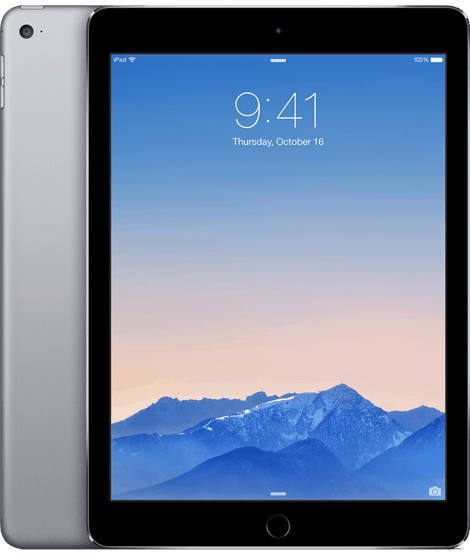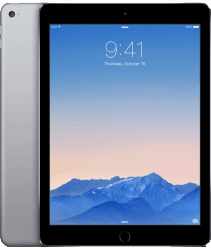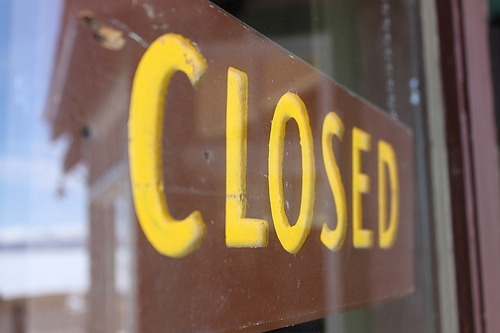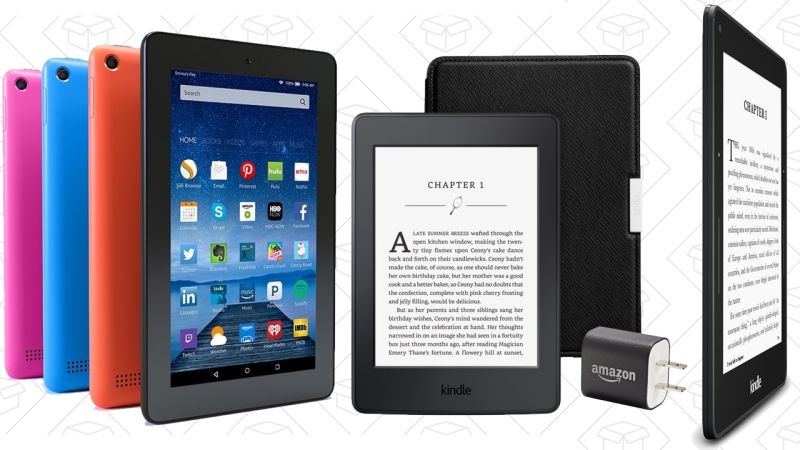Breaking News: Study Finds Glow from iPads Still Disrupts Sleep

The Washington Post revealed some shocking news today. Even though decades have passed since the issue was first identified, apparently staring into a backlight screen late at night will still affect your sleep pattern.
From the Washington Post:
Basking in the blue glow of tablets, smartphones and other electronic devices before bedtime could be messing up our sleep patterns more profoundly than we realize, and even affecting our long-term health, according to a new study published Monday in the Proceedings of the National Academy of Sciences.
"It may be having a greater impact than we previously thought," said Anne-Marie Chang, a professor at Penn State University and a co-author of the study, which was conducted at Brigham and Women’s Hospital in Boston.
A growing body of evidence has suggested what many people have experienced firsthand — that the pervasive glow of electronic gadgets can hinder a good night’s sleep. But researchers behind Monday’s study, which was supported by a grant from the National Institutes of Health, set out to decipher what changes in the body cause those disruptions.
I don’t know about you, folks, but I’m surprised this counts as news.
![4509414112_edea794d4d_o[1]](https://the-digital-reader.com/wp-content/uploads/2014/12/4509414112_edea794d4d_o1-500x363.jpg)
All 3 stories cited medical professionals, and the last two even mentioned the results of studies which showed the connection between using an LCD screen and a negative impact on your sleep pattern. What’s more, these are just 3 of the dozens of stories written on this issue in the past 5 years; you can find more by Googling "iPad melatonin".
Aside from the astounding detail that the Washington Post reporter didn’t find those older stories, there’s really not much in the way of news here today.
images by krossbow,



Comments
William D. O’Neil December 22, 2014 um 5:36 pm
As often is the case with popular media accounts of research findings, you’ll do better to read the abstract of Prof. Chang’s paper itself, at http://goo.gl/qkc7m9. Note that the full paper is available for free d/l from this page.
As is to be expected from a paper published in PNAS, her work expands the knowledge of this issue, much of which has been casual or anecdotal. There’s still a lot to be learnt, however, and the paper points some of it out.
Nate Hoffelder December 23, 2014 um 7:48 am
This is true, Will, but I don’t see the need to do so. I’m not that interested in this area of physiology. My interest was satisfied by previous papers which also showed the connection.
But thank you for the link.
Basem December 22, 2014 um 7:59 pm
Apple, a negative trend setter that is now stunted, pushed everyone to these pixel wars (gorgeous display!) which may be a factor for the current stagnation when it comes to screen technology. There is a lot of promising technology out there that can push away from back lit screens and is far more energy efficient e.g. LiquaVista’s electrowetting technology. I believe Samsung’s Superamoled display, which is genuinely innovative, isn’t backlit and the display is far easier on the eye than LCD.
Basem December 22, 2014 um 8:00 pm
Apple set this negative trend that pushed everyone to these pixel wars (gorgeous display!), which may be a factor for the current stagnation when it comes to screen technology. There is a lot of promising technology out there that can push away from back lit screens and is far more energy efficient e.g. LiquaVista’s electrowetting technology. I believe Samsung’s Superamoled display, which is genuinely innovative, isn’t backlit and the display is far easier on the eye than LCD.
Thomas December 22, 2014 um 10:24 pm
I wonder if any of the people in this study tried reading with the screen inverted, white text on black background. That’s easier on my eyes, and uses less battery power too. I read this way every night before bed, and I haven’t had any problems.
Nate Hoffelder December 22, 2014 um 10:26 pm
I don’t know if anyone tested for that screen combination. I wonder if it would change the results?
Thomas December 22, 2014 um 10:41 pm
I would expect it would. It really cuts down on the light emitted by the screen. My tablet gets more than 60 percent longer battery life with wifi off reading this way.
LS December 22, 2014 um 11:35 pm
I read on the night screen too, you can dim the screen brightness quite a bit on that setting.
Paul December 23, 2014 um 10:46 am
This is why some journalists I know (particularly those working for newspapers or weekly magazines) have for years taken to wearing orange safety glasses when we’re working late at night. It stops the blue light getting in and you sleep better. It took a while to find a pair that fits over your vision glasses, but Amazon sells some for about 8 bucks.
AltheGreatandPowerful December 23, 2014 um 12:02 pm
I just switch the theme in Moon+ to yellow letters on black background, and dial down the brightness to 65-75%… bright enough to read, but dim enough to do it next to my sleeping wife. And no blue at all, so I can lay it down and slip right into slumber.
oj829 December 23, 2014 um 3:23 pm
My daytime theme is black on yellow, but same effect: no blue.
For my workday use I set my desktop monitor to zero out all blue, adjust settings/scheme so the result doesn’t frighten me, and it is far less tiring.
eReaders Can Disrupt Your Sleep, and Other Nonsense ⋆ The Digital Reader December 23, 2014 um 4:11 pm
[…] is generating a lot of buzz. In addition to the publications like the Washington Post that missed the context and background details, there are many news sources that can't even get the foreground details […]
your mom December 24, 2014 um 5:17 pm
bloggers should stick to blogging, instead of trying to analyze scientific research.
Vad vet vi om farorna – egentligen? | Ordfog December 27, 2014 um 7:18 am
[…] Dessutom är det inte den första studien med samma resultat, vilket bland annat påpekas i ett blogginlägg från en av mina favoritbloggar just nu, The Digital Reader. Det finns alltså skäl att ta den på […]
The Better Way to Read at Night on Your Tablet, iPad or Smartphone | Ink, Bits, & Pixels June 27, 2015 um 6:28 pm
[…] have been saying for years and years that reading an on LCD screen late at night will disrupt your sleep, and techies have been working nearly as long to come up with fixes for that […]